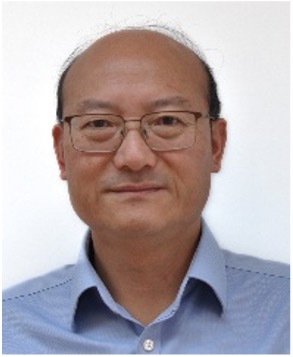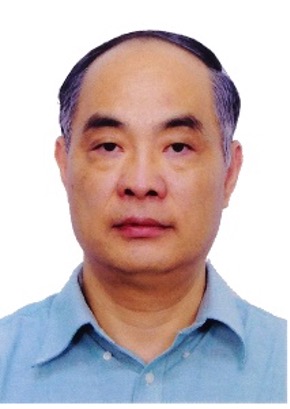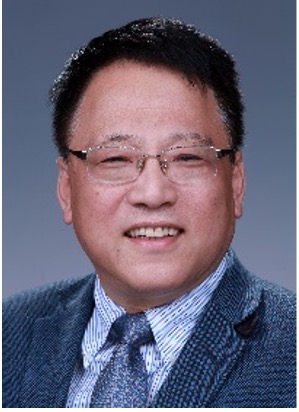Trends and Opportunities in Control and Automation
Time: 16:00-17:30, June 20, 2024
Venue: H102, Háskólatorg / University Centre, University of Iceland
Chairs:
Professor Wei Kang, Naval Postgraduate School, USA
Professor Zhengtao Ding, University of Manchester, UK
Panelists:
Professor Pedro Albertos, Universitat Politècnica de València, Spain
Professor Wen-Hua Chen, Loughborough University, UK
Professor Jie Huang, The Chinese University of Hong Kong, China
Professor Hong Wang, Oak Ridge National Laboratory, USA
The theme of this year's IEEE ICCA plenary session revolves around the Trends and Opportunities in Control and Automation. We are privileged to have four distinguished experts and educators in this field join our panel, where they will share their expertise, insights, and visions. Together, we will delve into the challenges facing research in control and automation, both current and emerging. Through direct dialogue with these esteemed panelists, our goal is to gain a deeper understanding of fundamental issues and emerging trends in the field.
Furthermore, this panel will serve as a platform for exchanging ideas and engaging in discussions on broader topics in control and automation. It also provides an invaluable opportunity for the audience, especially students and junior researchers, to glean insights from senior members of our community on challenges commonly encountered in the early stages of our careers or studies.

Professor Pedro Albertos
Universitat Politècnica de València, Spain
Professor Pedro Albertos is an Emeritus Professor in Department of Systems Engineering and Control, Universitat Politècnica de València, Spain. He is Doctor Honoris-Causa from Oulu University, Finland and Bucharest Polytechnic, Rumania, Honorary Professor at North-Eastern University, Shenyang, China. Invited professors in more than 20 Universities, he delivered seminars in more than 30 universities and research centres and more than 25 Plenary talks at IFAC/IEEE conferences. Authored over 300 papers, book chapters and congress communications, co-editor of 7 books and co-author of Multivariable Control Systems (Springer 2004), Feedback and Control for Everyone (Springer 2010), which received the Harold Chesnut Best Textbook Award at the IFAC World Congress in Toulouse in 2017, and Linear Algebra Control (Springer 2020). His research areas include embedded control systems, time delays systems and control applications. He is a "Prometeo" researcher in Spain and Ecuador, and was Associated editor of Control Engineering Practice, Automatica and Editor-in-Chief of the Spanish journal RIAI.
Being IFAC President (1999-2002), he organized the XV IFAC World Congress, Barcelona, Spain. He is IEEE Life Senior Member and IFAC Fellow.

Professor Wen-Hua Chen
Loughborough University, UK
Professor Wen-Hua Chen holds Professor in Autonomous Vehicles in the Department of Aeronautical and Automotive Engineering at Loughborough University, UK. Professor Chen has a considerable experience in control, signal processing and artificial intelligence and their applications in aerospace and automotive engineering. In the last 20 years, he has been working on the development and application of unmanned aircraft system and intelligent vehicle technologies, spanning autopilots, situational awareness, decision making and verification. His specific research in autonomous vehicles include personalized smart vehicles, situational awareness in dynamic traffic environments, and decision making for autonomous emergency braking.
Professor Chen is a Chartered Engineer, and a Fellow of IEEE, the Institution of Mechanical Engineers and the Institution of Engineering and Technology, UK. Recently Prof Chen was awarded a 5 years EPSRC (the Engineering and Physical Sciences Research Council) Established Career Fellowship in developing goal-oriented control systems for robotics and autonomous systems.

Professor Jie Huang
The Chinese University of Hong Kong
Professor Jie Huang studied Power Engineering at Fuzhou University from 1977 to 1979 and Circuits and Systems at Nanjing University of Science and Technology (NUST) from 1979 to 1982 for a Master degree. He completed his Ph.D. study in automatic control at Johns Hopkins University in 1990. After a year with Johns Hopkins University as a postdoctoral fellow and four years with industry in USA, he joined the Department of Mechanical and Automation Engineering, the Chinese University of Hong Kong (CUHK) in September 1995, and is now Choh-Ming Li Research Professor of Mechanical and Automation Engineering.
Professor Huang is an IEEE Life Fellow and IFAC Fellow. His research interests include nonlinear control, networked multi-agent systems control, game theory, and guidance and control of flight vehicles. He has authored/co-authored four monographs and over four hundred research papers.

Professor Hong Wang
Oak Ridge National Laboratory, USA
Professor Hong Wang, Fellow of IET, IEEE, InstMC and AAIA, received his BSc, MS and PhD from Huainan Mining Institute and Huazhong University of Science and Technology, China, in 1982, 1984 and 1987, respectively. He was a research fellow at Salford, Brunel, and Southampton Universities before joining the University of Manchester Institute of Science and Technology (UMIST), UK, in 1992. Wang was a chair professor in process control since 2002 and is now a professor emeritus with the University of Manchester, and he was the deputy head of the Paper Science Department and director of the UMIST Control Systems Centre between 2004 and 2007. He was a member of the University Senate and General Assembly. Between 2016 and 2018, he was with Pacific Northwest National Laboratory as a lab fellow and chief scientist and was the co-leader for the Control of Complex Systems. He joined Oak Ridge National Laboratory in January 2019 as senior distinguished scientist.
Professor Wang was an associate editor for IEEE Transactions on Automatic Control, IEEE Transactions on Control Systems Technology, and IEEE Transactions on Automation Science and Engineering. He currently serves on the editorial board of IEEE Transactions on Neural Networks and Learning Systems. He is also a member of three IFAC committees. Professor Wang's research focuses on stochastic distribution control, fault diagnosis and tolerant control, and uncertain systems optimization with applications to transportation, power grid and industrial systems. In these areas he has published over 200 journal papers and 6 books.